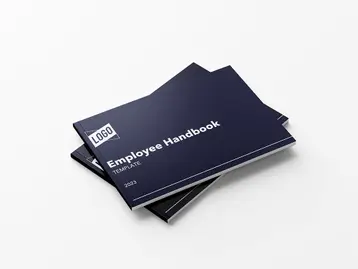
Smoking cigarettes is not allowed in most workplaces. In fact, some employers refuse to hire smokers at all. Most recently, U-Haul announced that the company would no longer hire smokers in 21 states. But what about vaping? Many employers have smoking policies, but they may not cover vaping. Should employers treat it like they do smoking cigarettes? Which laws affect workplace vaping policies? We’ve created a list of frequently asked questions to help you create your own policy for vaping in the workplace.
What is vaping?
The term “vaping” refers to the use of electronic cigarettes. These devices, which may be called e-cigarettes, e-cigs, vape pens, or vaporizers, are battery operated, smokeless nicotine delivery systems. They usually look like a pen or a flash drive. Users puff on these devices and inhale an aerosol, commonly called “vapor.” The vapor contains tiny particles of various toxic chemicals, such as nicotine, and has been linked to cancer, heart disease, and respiratory disease.
Is vaping harmful?
As stated above, some of the chemicals in vapor aerosols have been linked to serious diseases, including cancer. According to public health officials, between 200 and 354 e-cigarette users in 22 states have developed severe lung disease, and 2 of them died from vaping-related illnesses. These numbers might seem small compared to the 16 million Americans living with tobacco-related diseases. But remember, vaping is a fairly new phenomenon, and there are still many more smokers than vapers in this country. Public health experts believe that vaping-related diseases may grow if more people continue to vape. However, for some people, there is an argument to be made for vaping improving health outcomes. According to the U.S. Centers for Disease Control and Prevention, for non-pregnant adults who already smoke, vaping might improve your health if you use it as a complete substitute for cigarettes and other tobacco products. To be clear, this doesn’t mean that vaping is actually good for you, just that it’s less harmful than cigarettes. So if you’ve never smoked or vaped, you shouldn’t start. CDC also warns that we don’t know enough about the effectiveness of vaping for smoking cessation.
Do state laws address vaping at work?
According to CDC, there are 13 states that have banned vaping in indoor workspaces. They include California, Colorado, Delaware, Florida, Hawaii, Maine, New Jersey, New York, North Dakota, Oregon, Rhode Island, Utah, and Vermont. Washington, D.C. and Puerto Rico also prohibit vaping in indoor workspaces. These districts have comprehensive smoke-free indoor air laws that include a ban on e-cigarettes in any place where smoking is not allowed, which includes not only workplaces, but restaurants and bars as well. There are also some states that have laws prohibiting smoking and vaping in specific workplaces. These include child care facilities, schools, universities, government buildings, correctional facilities, and sports arenas. For most states, though, the law does not clearly state whether or not vaping is prohibited in indoor workspaces. However, some cities and local governments have passed laws specifically addressing e-cigarettes and prohibiting their use in indoor workplaces.
Should your organization prohibit vaping at work?
If you operate in a district where vaping is illegal in indoor workplaces, then your policy handbook should state that smoking and vaping are not allowed in your building. If you would like, you can designate outdoor areas where employees can smoke or vape. But pay attention to the specifics of your state’s or locality’s smoking laws. Some include prohibitions against smoking and vaping in certain outdoor areas as well, such as within 20 feet of the building’s entrance. If your state or local law does not address vaping at work, then it is up to you to choose what you will allow. Many employers choose to disallow vaping at work because it helps keep their employees and/or customers healthy. In addition, employee vaping might project an unprofessional image to your customers, which could hurt your business. However, if you run the type of business where your customers might prefer to vape, like a bar or a tobacco shop, you might choose to allow vaping indoors. Just be aware that there are health risks involved, and these can be costly to employers.
Can you fire an employee for vaping?
If your company policy, state, or local law prohibits vaping at work, then yes, you can fire an employee for vaping at work. (Note: this doesn’t mean that you can fire someone for vaping outside of work.) However, you should have disciplinary procedures in place that govern how you will handle it when an employee violates your policies. If you or the government have banned vaping in your workplace and one of your employees breaks that rule, then follow your own disciplinary procedures. In most cases, this will include several steps before termination of employment.
How do I write a workplace vaping policy?
The most important thing to do for any company policy is to write crystal clear guidelines. Make sure your policy clearly lays out which products are prohibited, and where they are prohibited. If you have a designated smoking and vaping area, say so. If you don’t, then state that the use of these products is not allowed anywhere on company property. If your employees use company vehicles, be sure to state your policy on vaping or smoking in those vehicles. If your employees work off-site, such as traveling to meetings or events, state your policy on smoking and vaping in those locations during work hours. Once you have written your policy, distribute it to all employees and have them sign an acknowledgment of receipt and understanding. You can also include it in your employee handbook so that new employees receive a copy during onboarding. And remember, it’s a good idea to inform your employees of new policies at least 60-90 days before they take effect. Some states might mandate another length of time for pre-notification of new policies. We hope these FAQs help you as you develop your own workplace vaping policies.
This communication is for informational purposes only; it is not legal, tax or accounting advice; and is not an offer to sell, buy or procure insurance.
This post may contain hyperlinks to websites operated by parties other than TriNet. Such hyperlinks are provided for reference only. TriNet does not control such web sites and is not responsible for their content. Inclusion of such hyperlinks on TriNet.com does not necessarily imply any endorsement of the material on such websites or association with their operators.






